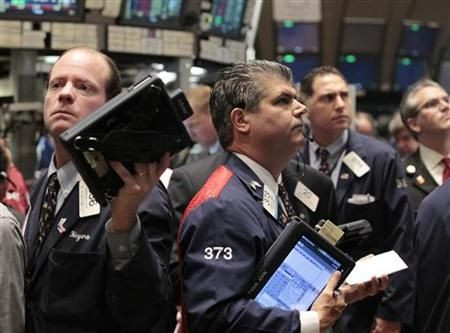Where Will Stocks be in 10 Years? Bogle’s Bird’s-eye View

With the U.S. stock market tanking in late 2011 due to a myriad of issues, mainly the stagnant U.S. economy and Europe's sovereign debt, many investors have sold out and ducked for cover.
Some even predict a double-dip in both equity prices and the economy. With the harrowing memory of the 2008 financial crisis still fresh, it's not surprising that they fear the worst.
When Vanguard Group founder John Bogle, 82, was asked by CNBC where he thinks stocks are headed for the next 10 years, he acknowledged the current problems.
I'm very concerned [about Europe]. If Greece goes down, a lot of German and French and other continental banks will go down. U.S. banks have a lot of money over there. This is a worldwide situation, said Bogle.
However, he also urged investors to not get too deep into the problems of a single decade, especially if the decade was kind of a makeup decade for the two insane decades before that.
Bogle was referring the 2000s decade (whose problems are the root cause of the issues today), which was capped off by the 2008 global financial crisis that took away most of the U.S. stock market gains for the 10-year period.
Before that decade, though, the 1990s and 1980s produced astounding returns for U.S stocks.
Bogle said that if one averages the gains in the three decades, it was about nine percent per year, which conforms to the historic average.
As for his prediction of how the U.S. stock market will do in the next 10 years, he again used history as a guide.
He predicted seven percent per year: the two percent yield of 10-year Treasury yields plus five percent growth for nominal corporate earnings.
He pointed out that annual compounding at seven percent per year doubles one's investment in 10 years.
Investment grade corporate bonds, on the other hand, will likely only yield half of that based on 10-year Treasury yields, he said.
Bogle's historical approach that somewhat brushes off current affairs isn't uncommon in the investment world.
Hedge fund manager John Paulson, for example, partially justified his bullishness in U.S. stocks in 2010 by citing that the average length of economic expansions after the last two U.S. recessions was 32 quarters.
Email Hao Li at hao.li@ibtimes.com
© Copyright IBTimes 2024. All rights reserved.




















